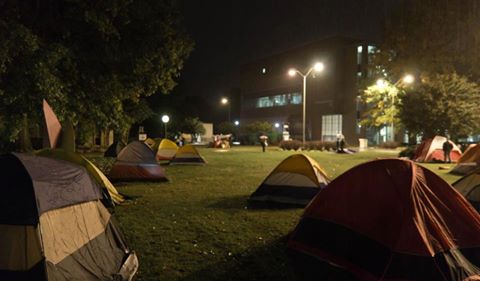Submitted by Michael Polacek
I read Sharonjeet Kaur’s article titled, “Understanding the culture of college drinking.” I enjoyed the content and wanted to inform the writer that there ARE some great initiatives taking place at the moment to “create a healthier and safe campus.” I believe The Sentinel is a great avenue to inform the greater student population about some of these initiatives.
I thought the article is an important matter to address. It is one reason our department, the Center for Young Adult Addiction and Recovery, exists. We provide support services for students who may be struggling with addiction or who may identify themselves as in recovery. We have seven full-time staff who are devoted to educational, research and community initiatives at our university and our field nationally. However, we are of service to the entire student population, not just those afflicted with addiction. We achieve this through several means that I will elaborate on in the rest of this article.
I think we can all agree that the university culture, as mentioned in the article, is quite high-risk when it comes to alcohol consumption and related behavior. And yes, proposing the idea that NO ONE should drink will not prevent many of the negative outcomes that stem from high-risk, substance-related choices. In other words, “just say no” is not the appropriate approach (especially in the college population). Arguably, this has been proven in recent decades.
However, here at KSU, we have taken additional steps to educate our student population and there are several initiatives taking place right now. I will elaborate on a few to help answer Kaur’s request proposed in the article.
Wise Choices workshop: This is a class taught by our staff (myself actually) for students sanctioned by Student Conduct and Academic Integrity (SCAI). The class presents a risk-perception model intended to educate students about making these low-risk decisions mentioned above. Within this presentation we also educate the students about signs of alcohol poisoning, what to do when someone is experiencing alcohol poisoning and inform the students about such initiatives like the Georgia 911 Medical Amnesty Law, which very few students know about. We also give the students an opportunity to self-assess their risk level at the end of the workshop.
Peer Education: This is a similar presentation as mentioned above, but taught by KSU students (peer educators). This semester the peer educators will be presenting in front of every freshman-seminar class. Peer educators have also taught in front of Health and Wellness students, the entire student athlete population, Greek Life, etc… This is one of the biggest leaps for our Center in terms of education and prevention.
Alcohol, Tobacco, and Other Drug Coalition: I’ll just take what we have on our website about ATOD: “The Alcohol, Tobacco, and Other Drug Education and Prevention Coalition is a community-wide collaborative of individuals, campus departments and community members interested in taking action for a healthier, safer campus environment. Co-Chaired by Teresa Johnston, Director of the Center for Young Adult Addiction and Recovery and Dr. Michael Sanseviro, Dean of Students, the coalition meets quarterly to discuss programming, policy, research, education, grants and environmental issues and to support campus wide initiatives.”
Naloxone Training: This doesn’t pertain to alcohol use specifically, but we train staff and will be training Resident Assistants at the university on how to properly administer and use Naloxone. Naloxone is a nasal spray intended to block the effects of opioids, especially in overdose.
In conclusion, there are several initiatives taking place “to create a healthier and safer campus.” However, we understand that it is difficult to communicate these initiatives to the entire student population. I believe The Sentinel is one great avenue in achieving this.
Michael Polacek is the Assistant Program Coordinator of the Center for Young Adult Addiction and Recovery at Kennesaw State University. He also graduated from KSU in 2014 with a Bachelor of Science in Psychology.


